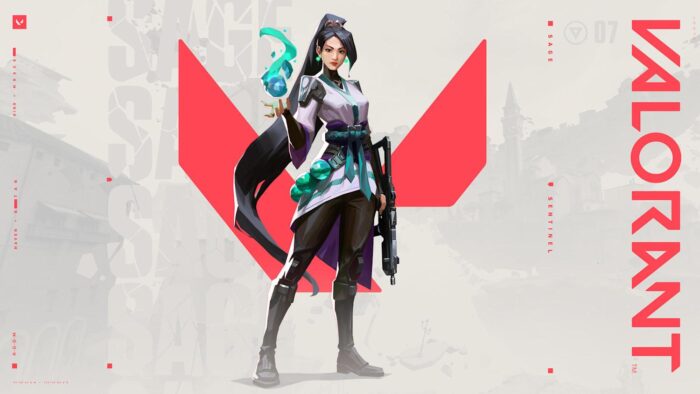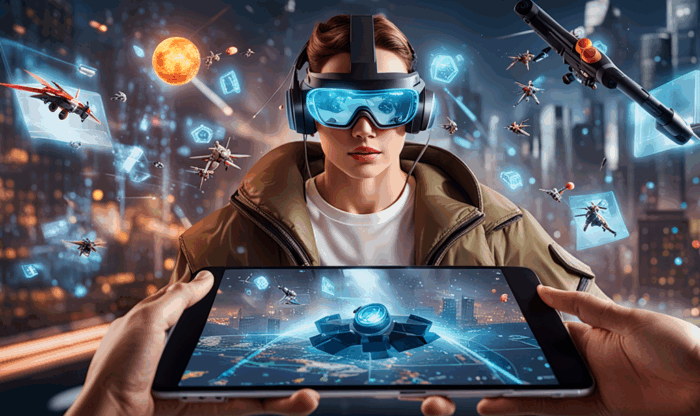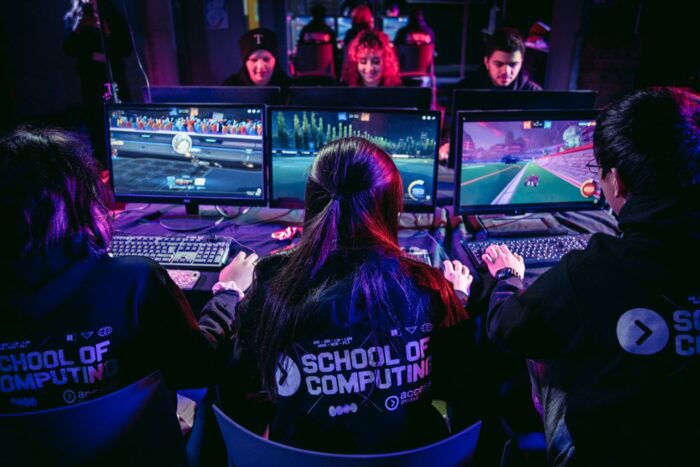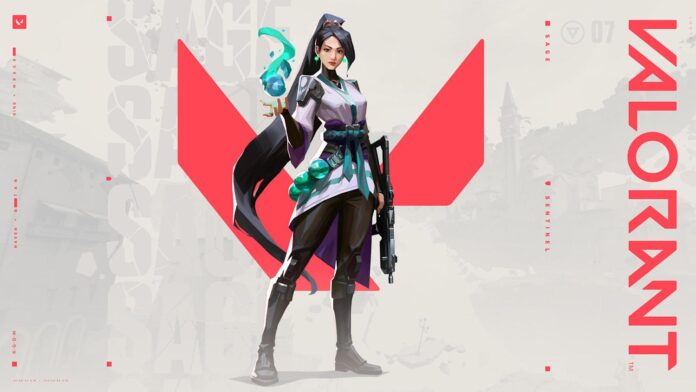With the advent of the internet, gaming consoles, and PCs, gone are the times when people only resorted to watching physical sports for entertainment. The world slowly shifted to digital sports, commonly termed as Esports. The process is actually pretty straightforward; all you need is a medium, such as a console or a PC to play your games, and a super steady internet connection with no latency issues to keep you connected.
I’ve been gaming for a while now, and have found 5g home internet helpful in this regard. I played numerous matches in Valorant, League of Legends, and DOTA 2, and my internet never bothered me. I recommend that you do the same to have a seamless online gaming experience, too.
The Current State of Esports

Understanding the Structure of Esports
Over the years, we’ve seen an increase in the number of tournaments for popular games such as DOTA 2, League of Legends, Tekken 8, Valorant, and a lot more. However, it is important to understand how the entire Esports format works so that you have a better understanding of it. Here are the different formats that Esports events follow:
Tournaments: The format and the qualifying rounds vary from game to game, as each of them has its own set of rules to follow. Plus, different tournaments follow different patterns, which makes each of them unique in their respective ways. Global tournaments such as the League of Legends World Championship feature teams from all over the world that compete for hundreds of thousands of dollars as a prize. Some other games have emerged promising for future tournaments, such as Nintendo’s Mario Kart 8 Deluxe and Super Smash Bros. Ultimate.
Leagues: Leagues vary slightly from tournaments, as they include both team-based experiences, such as Rocket League and DOTA, and one-on-one fighting games, such as Super Smash Bros. Ultimate and Tekken 8. The current undisputed champion for Tekken 8 is Arslan Ash, hailing from Pakistan. A league includes a season schedule of events in a year-end playoff or a tournament format, and a champion emerges as the winner. This has helped encourage gaming not just in Esports events but in homes as well (so that you can see whether you have what it takes or not).
Fair Play and Integrity
As time passes, people are taking Esports tournaments and leagues a lot more seriously. With millions of eyes set on the industry, they can’t afford any kind of cheating that may lead to an undeserved win. That is why many Esports tournaments and leagues take fair play and integrity very seriously. They have set up their anti-cheating security system that’s quick in action and catches you as soon as it notices anything that might be shady.
This helps in keeping the fans, players, and sponsors’ trust intact, ensuring that the Esports industry continues to thrive.
Game-Changing Technologies Driving Esports Forward

The Integration of Artificial Intelligence (AI)
Some cutting-edge technologies have made distinct developments in the Esports industry, making the future of Esports look a lot brighter. Not only have these technologies worked in favor of the players, but they have been beneficial for video game developers as well. The reason is that AI can analyze data in real-time, which can help players improve their strategies. They upload their gameplay into the AI software, which then analyzes it and suggests what could be done to improve their strategies.
Similarly, video game developers can also harness the power of AI to improve the non-playable characters (NPCs) to make them more intelligent, and they can use it to improve the opponent AI. For instance, imagine when the online mode for Grand Theft Auto 6 drops, and the interactive NPCs make the game even more interesting to play.
In the case of the opponent AI, I was playing Need for Speed Unbound when I noticed that the opponent AI for this game was lightyears ahead of its predecessors, the opponents actually pose a challenge to the player and you have to hit the “pedal to the metal” if you really want to win the race. It would be pretty interesting if they made a tournament for racing games, too, though, that’s something I’m still waiting to see.
The Possible Addition of Augmented Reality and Virtual Reality

To take things up a notch, gaming industries could incorporate AR (Augmented Reality) and VR (Virtual Reality) into their games for a more hands-on approach during tournaments. For instance, you might remember how Tekken 7 had a VR version of the game, too. Before Tekken 8, it dominated all the Tekken tournaments. Gaming competitions could possibly bring back the VR version of Tekken 7 for more immersive tournaments.
This would take things to a whole new level as it would be a better way to test the skills of all the competitors. It’ll be the ultimate test of strategy and reflexes to see who emerges as the champion!
The Introduction of Low-Latency Networks
Currently, the biggest hurdle in the Esports industry is latency. Whether you’re at home or participating in a small-scale tournament, high latency can turn out to be the bane of your existence as you “try” to win at games. This is where internet service providers (ISPs) can pick up the pace and introduce speeds up to 10 Gbps for a better gaming experience.
Earlier, I mentioned how crucial it is to have a reliable internet service while you play online games, so you can ensure that you don’t get disconnected in between. A 10 Gbps internet connection would have lower latency, making gameplay even smoother.
This will also be beneficial for the viewers at home as they watch the livestreams of their favorite tournaments. So either way, it’s a win-win for the entire gaming and Esports industry.
Economic Influence of Esports on Competitive Gaming

It is estimated that the Esports industry amassed a total revenue of over 1.22 billion in 2023, and ever since then, it has been on the rise. Esports have paved the way for more job opportunities and investment opportunities, so you could say that it’s on a rollercoaster that only goes up (hope you get the reference).
Not only that, but Esports have also included revenue streams via advertising, sponsorships, merchandise sales, and media rights. This has worked in the favor of many game developers as it boosted their sales once global tournaments became a thing. Esports have also branched out into various other industries, such as content creation and event management, and they have thrived individually as well. So it is safe to say that Esports have had a considerable positive impact on the economy.
The Evolution of the Esports Ecosystem
The Esports industry has come a long way. Video games initially started as a niche hobby, but it was in 1972 when the first gaming competition took place at Stanford University as a small competition, and the rest is history. For a long time, gaming was thought of as a hobby. You would have a PlayStation at home, and you would turn it on after a draining day at school so you could blow off some steam.
However, today, Esports is a billion-dollar industry, debunking the idea that “gaming rots your brain and it’s just a hobby”. You would be amazed at how much Esports competitors earn as prizes and sponsorships. This goes to show that Esports and gaming have gone through considerable evolution to be where they are today. You can read up more about the top Esports games of 2025 so that you can see which one caters to your interests and begin playing.
Future Trends in Esports to Watch

How amazed would you be if I told you that this is just the beginning of the Esports industry? So far, we’ve only touched the surface, and there is a lot more that we can tap into. For instance, we’ll likely see a rise in mobile gaming. Currently, we’re only focused on PC and console games such as Tekken and Valorant, but we can still explore what the mobile gaming industry is like using games like PUBG Mobile and Call of Duty Mobile.
As I mentioned earlier, we are yet to see developments in VR and AR to make the gaming experiences more immersive than ever. Who knows, maybe one day we could be good enough to compete as well? Similarly, we are yet to see more titles that will take the mantle for tournaments, these games include Marvel Rivals, Brawlhalla, MultiVersus, Smite 2, and Deadlock.
With this, we conclude the advent of the Esports industry and how it has reached where it is today. What started off as a hobby has now become an immaculate billion-dollar industry. For now, we can hone our skills so that maybe one day we could take part in these tournaments too!

